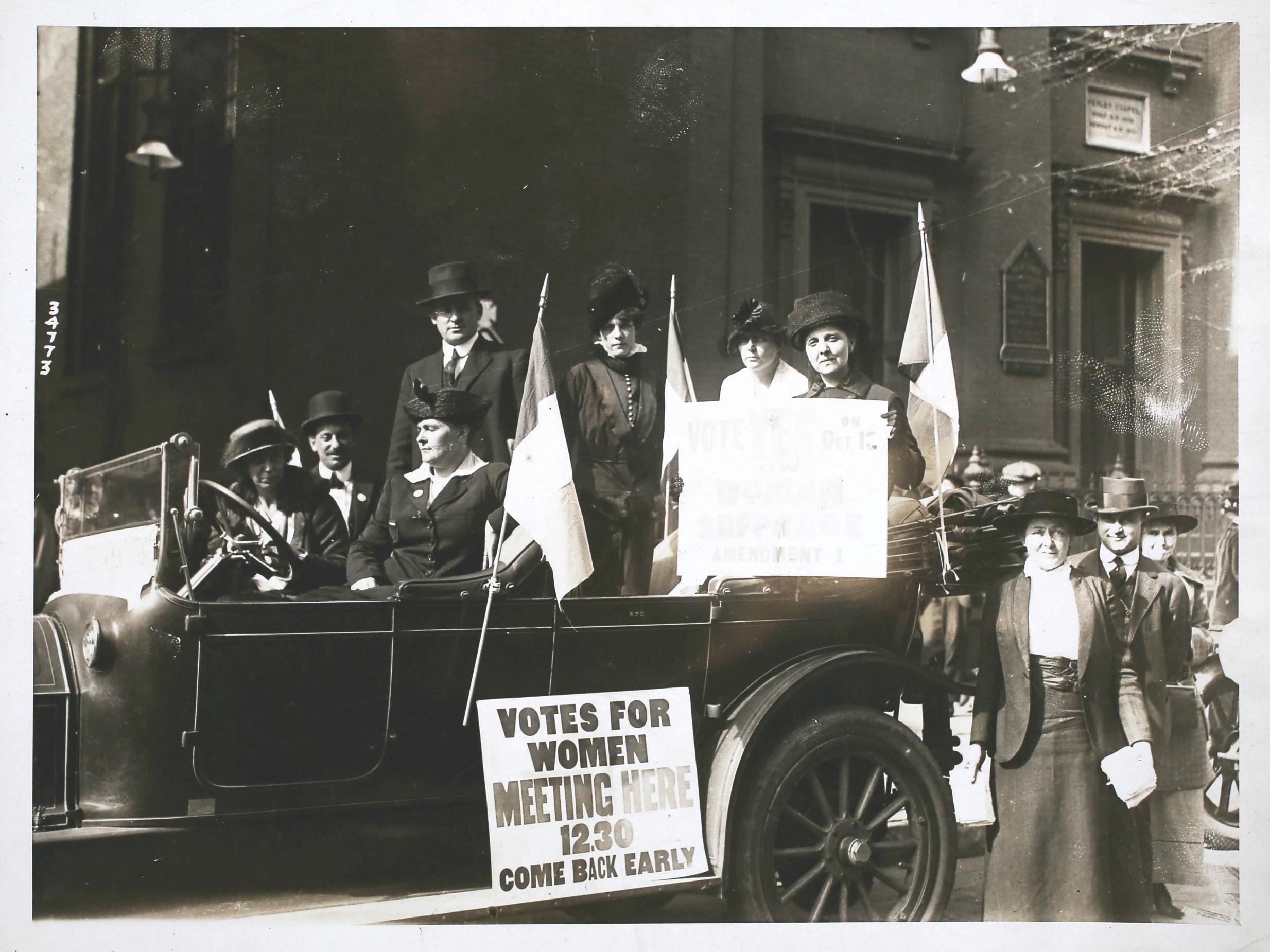International Women’s Day: 8 ways America is still failing women 100 years after we got the vote
This year marks a century since the 19th Amendment granted women across the US the right to vote

International Women’s Day isn’t without its issues (Shouldn’t every day be International Women’s Day? And wouldn’t it be nice if we lived in a world where such a day wasn’t needed?) but it’s a welcome opportunity to reflect on women’s rights and those who fought, and continue to fight, to defend them.
Of course, it’s also a good time to consider the inequalities that affect women around the world.
In the US, this International Women’s Day – which falls this Sunday 8 March – has a special flavour, as it’s been a century since the 19th Amendment granted women across the country the right to vote. Ratified on 18 August, 1920, the 19th Amendment makes it unconstitutional to deny citizens’ rights to vote on the basis of sex.
Many landmark decisions have followed since then, such as the Equal Pay Act of 1963 and the Supreme Court’s Roe v Wade ruling protecting abortion rights across the US.
Despite these achievements, women still face inequality in many respects in the US. Here are eight facts to ponder this International Women’s Day:
The wage gap hasn’t gone away
Far from it. According to the ACLU, women in the US make 78 cents for every dollar earned by men. The situation is worse for black women and Latinas, who make 64 and 54 cents respectively on every man’s dollar.
Maternity leave policies are lacking, to say the least
In December 2019, the Pew Research Center published a handy ranking of 41 countries based on their parental leave policies – more specifically, the number of weeks of paid leave available to a new parent, multiplied by the average reimbursement during those weeks off.
At the bottom of the ranking? The US, aka the only country out of 41 not to mandate any paid parental leave.
It’s worth noting, however, that some states, such as New York, New Jersey and California, have chosen to enact their own policies guaranteeing some amount of paid family leave.
We’re still bumping against the glass ceiling
The US ranked 22 out of 29 in The Economist’s latest glass ceiling index, published on 4 March. On a scale of zero to 100, with 100 representing the best environment for working women, the US achieved an index of less than 60 – below the OECD average.
Women of colour disproportionately die during or in the aftermath of pregnancy
The pregnancy mortality rate increased in the US between 1987 and 2016 – jumping from 7.2 deaths per 100,000 live births to 16.9 deaths, according to the CDC.
Black women are significantly more likely to die during or after pregnancy: between 2011 and 2016, there were 42.4 deaths per 100,000 live births for black, non-Hispanic women, based on the CDC’s numbers. For American Indian and Alaskan Native non-Hispanic women, the number of deaths reached 30.4. There were 14.1 deaths per 100,000 live births for Asian/Pacific Islander non-Hispanic women; 13 deaths per 100,000 live births for white non-Hispanic women; and 11.3 deaths per 100,000 live births for Hispanic women.
A sixth of American women have been raped or have experienced an attempted rape
According to RAINN, one in six American women has either been raped of been the victim of an attempted rape in her lifetime. Their risk of being confronted to sexual violence increases if they become college students: 33.4% of female undergraduate students have experienced non-consensual sexual contact involving force, incapacitation, coercion or the absence of position consent, according to a 2015 study.
Transgender women are disproportionately affected by violence
At least 26 transgender or gender-non-conforming people were fatally shot or killed by other violent means in 2019, according to the Human Rights Campaign, and 91% of them were black women. Since 2013, at least 137 transgender women have been victims of fatal violence, according to the organisation.
For many women, violence leads to homelessness
According to research compiled in 2016 by the US Department of Health and Human Services, between 22 and 57% of homeless women say they became homeless as a direct result of domestic violence – and 38% of domestic violence victims experience homelessness.
Abortions rights are under constant threat
Despite the Supreme Court’s decision to affirm reproductive rights in 1973 through Roe v Wade, conservative states have made a renewed push to restrict access to abortion services.
The US Supreme Court is currently reviewing a Louisiana law requiring doctors who perform abortions to have admitting privileges at a local hospital. If the law is upheld, only one of Louisiana’s three abortion clinics would likely remain open.
Subscribe to Independent Premium to bookmark this article
Want to bookmark your favourite articles and stories to read or reference later? Start your Independent Premium subscription today.

Join our commenting forum
Join thought-provoking conversations, follow other Independent readers and see their replies